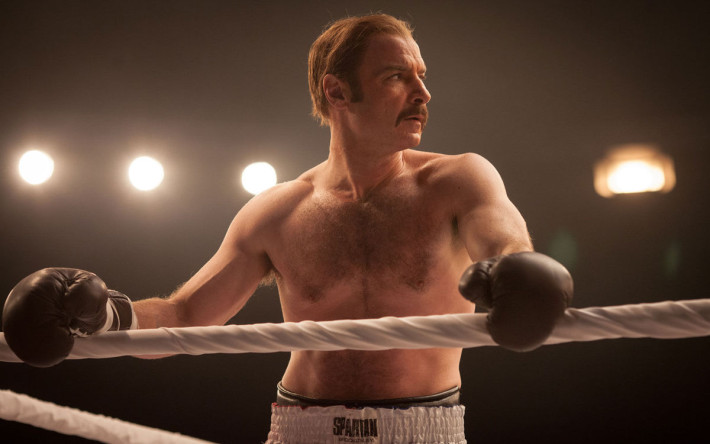The Invisible Man
by Hope Madden and George Wolf
Leigh Whannell likes him some mad science.
Two years ago the Saw and Insidious writer found his footing as a director with the unreasonably entertaining Upgrade. In what amounted to Knight Rider as imagined by David Cronenberg, the film gave the old yin/yang concept a robotics feel thanks to the work of an evil genius.
The evil genius concept is back for Whannell’s reimagining of The Invisible Man. But the most interesting thing about this version of the old H.G. Wells tale is that the man—invisible or not—plays second fiddle.
Instead of the existential ponderings that generally underscore cinematic Invisible Man retellings, Whannell uses this story to examine sexual politics, abuse, control and agency.
It’s a laudable aim, but the reason it works is casting.
How fucking great is Elisabeth Moss?
Not just in this film—but make no mistake, she’s fantastic. Whether it’s her TV work, small bits in indies like The Square or The Kitchen, or leading film roles, she’s been brilliant in everything she’s ever done. (Last year’s Her Smell is making its cable TV rounds – watch it!)
Whannell’s script is smart, with much needed upgrades to the invisibility formula as well as the havoc wrought. There are a handful of unrealistic moments, mostly in terms of character development, but a game cast (including Aldis Hodge, Storm Reid, Harriet Dyer and Michael Dorman) consistently elevates the material.
There is also an irritatingly convenient employment of security footage: there when it suits the film, but weirdly unmentioned when it would derail the plot.
The fight choreography, on the other hand, is evenly fantastic, and these one-sided battles had to be hard to execute.
But the success of The Invisible Man is almost entirely shouldered by Moss, who nails every moment of oppressed Cecilia Kass’s arc. And early on, Moss has to sell it – pardon the pun- sight unseen. We’re only told Cecelia is abused, but Moss makes sure we never doubt that it is so.
Cecelia’s desperation, her fear, her logic, self-doubt as well as belief—all of it rings absolutely true. When you’re building a fantasy film in which one character is invisible and most actors are responding to an empty room, authenticity is key (and often very hard to come by). Moss makes it look easy.
But beyond the sci-fi and horror elements, Whannell’s success at weaving this tale through a #metoo lens comes from our total investment in Cecelia as a person first, personification of a systemic problem second. Without that, the gaslighting is less resonant and the eventual payoff less earned.
The two-hour running time does come to feel a tad bloated, but this new monster vision boasts plenty of creepy atmospherics, controlled tension and – wonder of wonders – well developed jump scares.
At its core, The Invisible Man is an entertaining B-movie horror propped up by contrivance. Whannell’s aim is to give the story new relevance, and thanks to Moss, his aim is true.






